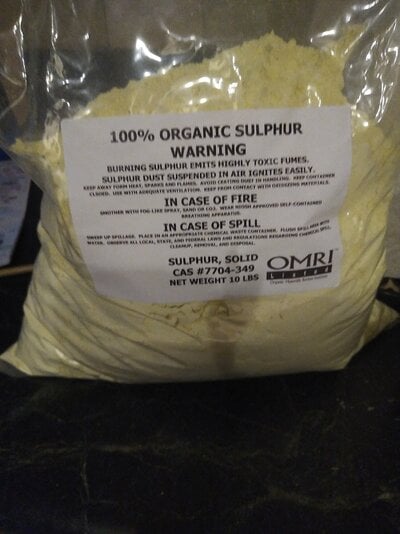- Apr 18, 2020
- 147
- 145
- 151
I read about sulfur being an excellent snake deterrent. I have a few small chicks, 6 weeks, and wanted to sprinkle some around the coop. I saw the crazy warning about toxic fumes and chance of fire. Coop obviously has lots of wood and shavings for bedding.. Anyone use this?
I added a pic
I added a pic




